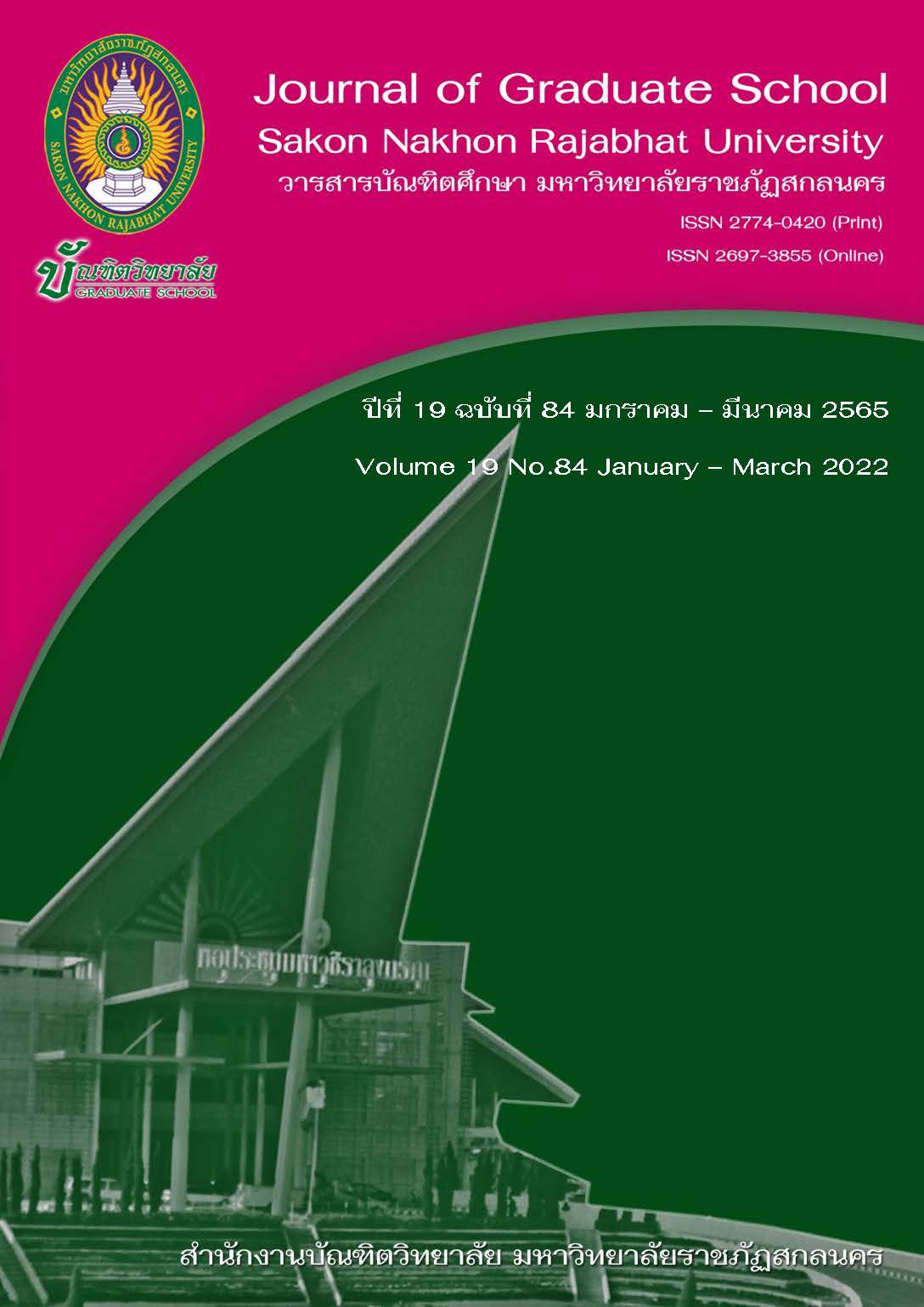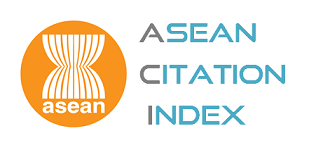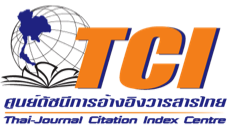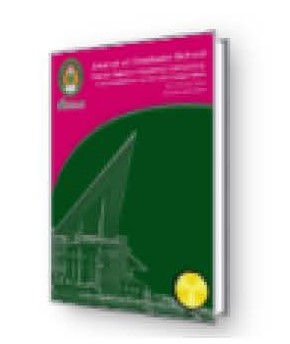การพัฒนากลยุทธ์การบริหารงานวิชาการด้วยกระบวนการชุมชนการเรียนรู้ทางวิชาชีพ (PLC) ของโรงเรียนมัธยมศึกษา สังกัดสำนักงานเขตพื้นที่การศึกษามัธยมศึกษา เขต 8
Keywords:
Academic Administration Strategies, Professional Learning CommunityAbstract
The objectives of this research were 1) to examine the current and desirable conditions of academic administration on Professional Learning Community (PLC) of secondary schools under the Secondary Educational Service Area Office, 2) to develop academic administration strategies using Professional Learning Community (PLC) of secondary schools under the Secondary Educational Service Area Office 8, and 3) to confirm the academic administration strategies using Professional Learning Community (PLC) of secondary schools under the Secondary Educational Service Area Office 8. The population consisted of 55 secondary schools under the Secondary Educational Service Area Office 8. Tools for data collection include a set of questionnaires with a reliability of 0.97. The statistics for data analysis were percentage, mean, standard deviation, and index needs (Priority Need of Index).
The findings were as follows: 1) The desirable conditions of academic administration using PLC in secondary schools under the Secondary Educational Service Area Office 8 were overall at a higher level than the current conditions. When considering in each aspect, all dimensions were overall at a higher level than the current condition, including support and sharing leadership, supporting environmental factors, sharing values, visions and working standard, cooperative working, and performance focusing on learning of students and teachers; 2) The academic administration strategies on PLC in secondary schools under the Secondary Educational Service Area Office 8 consisted of six main strategies as follows: strategies focusing on learning of students and teachers, strategies on learning exchange to reflect the teaching and learning methods, strategies on supporting environmental factors in the classroom and participation, strategies on value sharing, organizational culture, visions, and cooperative performance standard, strategies on performance reinforcement for encouraging the collaboration in managing PLC processes, and strategies on supportive and sharing leadership; and 3) The academic administration strategies on PLC of secondary schools under the Secondary Educational Service Area Office 8 were found in the conformity of propriety, utility, accuracy, and feasibility.
References
คณะกรรมการอิสระเพื่อการปฏิรูปการศึกษา. (2562). ปฏิรูปการศึกษาไทย รายงานของคณะกรรมการอิสระเพื่อการปฏิรูปการศึกษา. เข้าถึงได้จาก https://www.thaiedreform.org/wp-content/uploads/2019/06/ CommissionReport050662.pdf. 25 พฤษภาคม 2563.
ทองพรรณ ปัญญาอุดมกุล. (2561). แนวทางการพัฒนาการใช้กระบวนการ PLC (Professional Learning Community) เพื่อพัฒนาคุณภาพการจัดการเรียนรู้ของครูโรงเรียนบ้านนาอ้อม สังกัดสำนักงานเขตพื้นที่การศึกษาประถมศึกษาพะเยา เขต 2. คุรุสภาวิทยาจารย์ JOURNAL OF TEACHER PROFESSIONAL DEVELOPMENT, 1(1), 45-55.
นันท์นภัส ชัยสงคราม. (2561). การเสริมสร้างชุมชนการเรียนรู้วิชาชีพทางการศึกษาในสถานศึกษาขั้นพื้นฐาน สังกัดสำนักงานเขตพื้นที่การศึกษาประถมศึกษาสุพรรณบุรี เขต 1. วิทยานิพนธ์ ปร.ด. กรุงเทพฯ: มหาวิทยาลัยธุรกิจบัณฑิต.
มนตรี แย้มกสิกร. (2559). ชุมชนการเรียนรู้วิชาชีพ: ความท้าทายต่อการเปลี่ยนตนเองของครู Professional Learning Community: Challenges in Self–Development of Teachers การประชุมทางวิชาการของคุรุสภา ประจำปี 2559 “การวิจัยนวัตกรรมการเรียนรู้และการจัดการศึกษาเพื่อการพัฒนาที่ยั่งยืน”. 39-46 กรุงเทพมหานคร: สำนักงานเลขาธิการคุรุสภา.
เรวณี ชัยเชวรัตน์. (2559). บทความเรื่อง “ชุมชนแห่งการเรียนรู้ทางวิชาชีพ (Professional Learning Community: PLC)”. สาขาวิชาหลักสูตรและการสอน คณะครุศาสตร์จุฬาลงกรณ์มหาวิทยาลัย.
เลขาธิการคุรุสภา, สำนักงาน. (2559). การประชุมทางวิชาการของคุรุสภา ประจำปี 2559. กรุงเทพฯ: สำนักงานเลขาธิการคุรุสภา.
สุพัตรา โคตะวงศ์ และนิมิต มั่งมีทรัพย์. (2562). การจัดการความรู้ที่ส่งผลต่อประสิทธิผลการบริหารงานวิชาการ ในสถานศึกษาสังกัดสำนักงานเขตพื้นที่การศึกษามัธยมศึกษา เขต 8. วารสารมนุษยศาสตร์และสังคมศาสตร์ มหาวิทยาลัยราชภัฏสวนสุนันทา. 2(2), 15-25.
สุภัทรา สภาพอัตถ์. (2562). การบริหารจัดการชุมชนแห่งการเรียนรู้ทางวิชาชีพในโรงเรียนมัธยมศึกษา. วิทยานิพนธ์ ปร.ด. นครปฐม: มหาวิทยาลัยศิลปากร.
อนุศร หงษ์ขุนทด. (2563). สรุปแนวทางการนำชั่วโมงการพัฒนาวิชาการและวิชาชีพมาทดแทนชั่วโมงการมีส่วนร่วมในชุมชนการเรียนรู้ทางวิชาชีพ (PLC). เข้าถึงได้จาก http://krukob.com/web/1-125/. 9 พฤษภาคม 2564.
อนุสรา สุวรรณวงศ์. (2558). กลยุทธ์การบริหารเพื่อเสริมสร้างชุมชนแห่งการเรียนรู้ทางวิชาชีพสำหรับครูโรงเรียนเอกชน. วิทยานิพนธ์ ปร.ด. กรุงเทพฯ: จุฬาลงกรณ์มหาวิทยาลัย.
อมรา จำรูญศิริ. (2555). รูปแบบความสัมพันธ์โครงสร้างเชิงเส้นของปัจจัยที่ส่งผลต่อการเป็นชุมชนแห่งการเรียนรู้ของโรงเรียนประถมศึกษาสังกัดสำนักงานคณะกรรมการการศึกษาขั้นพื้นฐานในภาคตะวันออกเฉียงเหนือ. วิทยานิพนธ์ ปร.ด. เลย: มหาวิทยาลัยราชภัฏเลย.
อำนาท เหลือน้อย. (2561). รูปแบบการบริหาร:จัดการชุมชนแห่งการเรียนรู้ทางวิชาชีพของโรงเรียนมาตรฐานสากล. วิทยานิพนธ์ คษ.ด. นครสวรรค์: มหาวิทยาลัยราชภัฏนครสวรรค์.
Andrews, D., & Lewis, M. (2002). The experience of a professional community: teachers developing a new image of themselves and their workplace. Educational Research, 44(3), 237-254.
DuFour, R. & Eaker, R. (1998). Professional learning communities at work: Best Practices for enhancing student achievement. Alexandria, VA: National Educational Service.
DuFour, R., Rebecca, D., & Eaker, R. (2008). Professional learning communities at work: New Insights for Improving Schools. Bloomington, IN: Solution Tree Press.
Hord, S.M. (1997). Professional learning communities: Communities of continuous inquiry and improvement. Austin: Southwest Educational Development Laboratory.
Krejcie, R.V. & Morgan, D.W. (1970, Autumn). Determining Sample Size for Research Activities. Educational and Psychological Measurement, 30(3), 607-610.
Moore,T. (2010). Professional Learning Communities: Do Leadership Practices impact Implementation and Sustainability and What Is the Relationship Between a School’s PLC and a School’ s Climate?. Doctoral degree of Philosophy in Educational Leadership, College of Education, University of South Carolina.
Simon, D. D. (2010). An Exploration of the Relationship between School Climate and Professional Staff’ s Perceptions of the Maturity of Professional Learning Communities in a Large Urban School System undergoing High School Reform. Doctoral degree in Educational, Graduate Faculty, University of West Georgia.
Thompson, S. C., Gregg, L., & Niska, J. M. (2004). Professional learning communities, leadership and student learning. Research in Middle Level Education. From: http://www.nmsa.org/Publications/RMLEOnline/tabid/101/ Default.aspx. February 13th, 2021.
Wolford, D.W. (2011). Effective Leadership Practices in the Sustainability of Professional Learning Communities in Two Elementary Schools. Doctoral degree in Education in Educational Leadership, East Tennessee State University.
Downloads
Published
How to Cite
Issue
Section
License
Copyright (c) 2022 Journal of Graduate School Sakon Nakhon Rajabhat University

This work is licensed under a Creative Commons Attribution-NonCommercial-NoDerivatives 4.0 International License.
บทความทุกบทความที่ตีพิมพ์ในวารสารบัณฑิตศึกษา มหาวิทยาลัยราชภัฏสกลนคร ถือว่าเป็นลิขสิทธิ์ของบัณฑิตวิทยาลัย มหาวิทยาลัยราชภัฏสกลนคร










